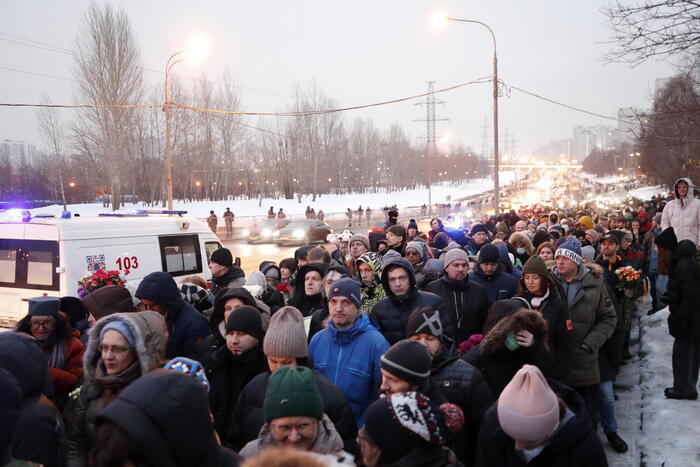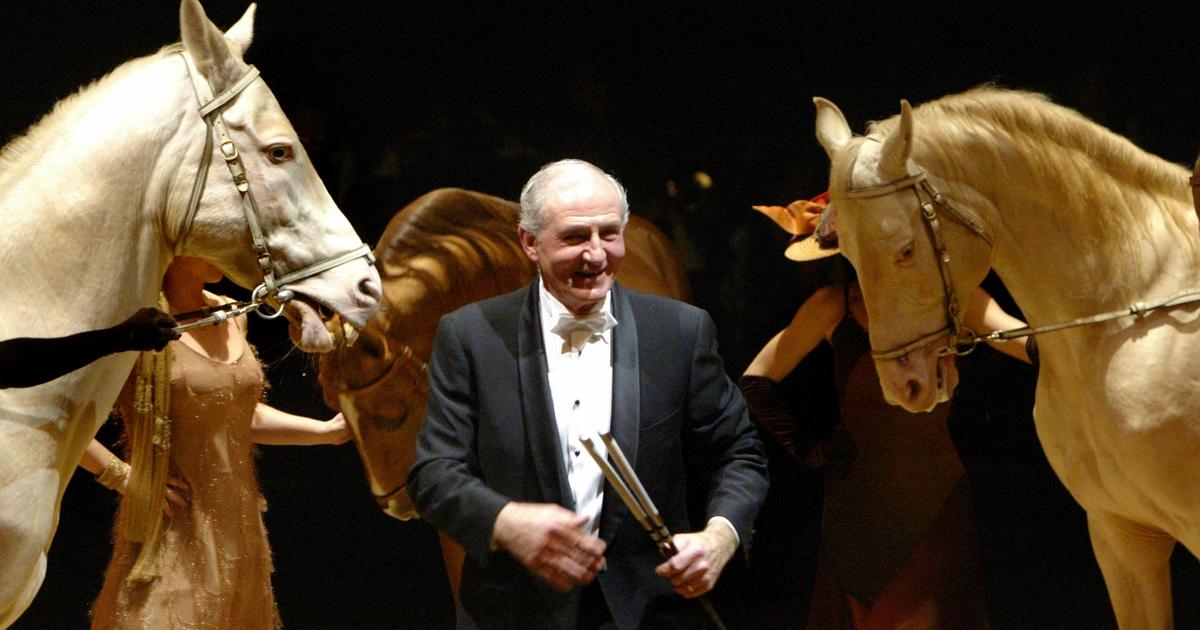Icon: enlarge
Election winner Santelli (on January 26, 2020): "Italy has never solved the problem of the south"
Photo: Andrea Pirri / NurPhoto / Getty Images
A few hours before Jole Santelli died, she gave her last interview.
The appointment came about at short notice.
The cell phone rang at 9:55 in the morning.
Eva was on the phone, her colleague.
The head of government in Calabria, she said, was ready to talk to SPIEGEL that same evening.
Meeting point: your private apartment in the Calabrian city of Cosenza.
It should be about how the coronavirus is changing Italy.
Above all: how it attacks the economy, destroys the livelihoods of countless people.
Calabria is an interesting place to study this effect, the region is at the very bottom of the toe of the Italian boot, it is among the poorest in the country and is traditionally known for the crimes of 'Ndrangheta, red onions and lemons.
One can say: Calabria was already bad before.
And the pandemic has not improved the situation.
Jole Santelli, a charismatic politician from the Berlusconi party Forza Italia, won the regional election in her home country only in January.
She was an unusual woman who seemed to have fallen out of time, just like her party, which had long been shrinking: While agitators like Matteo Salvini dominate the right-wing camp in Italy with loud slogans, Jole Santelli relied on moderate tones.
And when Forza Italia achieved only six or seven percent approval nationwide, it won a huge victory in Calabria.
She celebrated the election evening with the folk dance Tarantella.
Santelli had to fight.
About their region.
And for their lives.
A few weeks later, Covid-19 had changed everything.
Everyone knew that the ailing health system in Calabria would not be able to cope with a rush of patients like the one in rich Lombardy.
And the companies in the south had little to counter the looming recession.
Santelli had to fight.
About their region.
And at the same time, as it turned out to me later, for her life.
At 6 p.m. the door to her private salon opens.
The room is furnished with classic furniture, there is a piano, contemporary art hangs on the walls, coral motifs and ceramics add local color.
Jole Santelli is lying on her sofa and smokes.
She wears a black jogging suit, her face looks narrower than in photos, a blanket wraps around her feet, and black plush slippers are on the floor.
She greets the visitor with a friendly, almost apologetic expression;
her look is a bit fatalistic and at the same time amused, as if asking for your understanding for the unusual interview situation.
But her words can hardly be heard.
Il Presidente, as the official salutation is, speaks in a whisper.
For an hour she gives a breathtaking interview that can sometimes only be understood because a political adviser and her press officer, who are both present, repeat particularly low sentences in louder Italian.
Santelli, the two gentlemen explain, when their boss left the room for a moment, she had attended the Giro d'Italia cycling race.
In the mountains, at 1,500 meters above sea level, it was cold, there she contracted an infection and lost her voice.
So nothing serious.
Fear of corona?
No, no, the politician whispers when she returns to the drawing room and lies down on the sofa again, the neck is her weak point.
What was worse in the first months of the pandemic, the fear of an uncontrollable wave of contagion that rolled over from Bergamo and Milan to the south?
Or the fear of a crash, of an economic domino effect in which one company falls after the next?
"It was both at the same time," says Santelli.
She spoke of the difficulties in the health system, where Italy had saved too much.
"Money was always paramount," she says.
Then it's about the help the pizza bakers, ice cream parlor operators and small hoteliers so urgently need, and about the summer season, which went well despite everything, "benissimo", whispers Santelli with a smile.
It is getting dark in front of the window, church chants gently waft over it
It's slowly getting dark outside the balcony window.
The horns of the cars can be heard from the street, and church chants gently waft across.
Il Presidente coughs, she has lit another cigarette, at the tip of which a long ash builds up;
just in time the advisor rushes to the sofa and hands an ashtray.
Santelli is now talking about what is most important to her.
Italy.
The seemingly eternal, almost fateful losing role of the poor south.
And the arrogant, condescending demeanor of the rich north.
She tries to pronounce words that are particularly important to her, as best she can, a little louder.
"Kohl", whispers Santelli, "the reunification".
The Germans invested a lot and in the end successfully invested in the unit, she says.
Your home country, however, did not manage to do something similar.
"Italy has never solved the problem of the south."
Not even her party leader Silvio Berlusconi, the long-time prime minister whom she once served as state secretary in Rome?
"He didn't succeed."
Icon: enlarge
Santelli memorial service in Catanzaro: not expected with her imminent death
Photo: Valeria Ferraro / imago images / ZUMA Wire
Why?
"The ruling class in the country is always provided by the north," she whispers, "this class has never seen that the south is important for the north, this class believes that the south always costs money."
It is a sad tale that has run through the history and literature of Italy since Garibaldi and Vittorio Emanuele II united the nation around 160 years ago.
It is about a resigned, backward-looking south that does not believe in its future itself, that is "tired and worn out" and remains in an eternal "twilight sleep", like the fictional character "The Gattopardo" in Giuseppe Tomasi di Lampedusa's epic set in neighboring Sicily says.
Was Santelli such a wife, discouraged and exhausted?
In the last few hours, she courageously disguises her condition with a cold
Later you will read in the newspapers that Jole Santelli had cancer years ago and that tumors troubled her.
It's a remarkable, memorable interview that she gives that evening.
Nobody in the room would have expected her imminent death;
Santelli has plans, a week later she wants to visit the film festival in Rome, where a film about her homeland is shown.
In her final hours, Santelli is a woman who courageously disguises her condition with a cold.
She shows no signs of despair, and she only talks about her physical complaints for a few seconds, she has more important things in mind.
"Today we have the historic chance to solve the problem of the South once and for all."
Your last hope is in Europe.
More than 200 billion euros are to flow from the Recovery Fund to Italy.
The only important thing is that Rome does not get in the way, because the government in the capital has not yet found an answer to the economic problems.
By the way, she could share the worries of some Germans that the EU billions might be squandered by Rome.
"The Germans are right! I have these worries too!"
However, Calabria should not be punished for it.
Santelli herself does not speak of a legacy, it only sounds like this in retrospect when she describes what may be the most important project for her for the future: the bridge between Calabria and Sicily, across the Strait of Messina.
It is a symbol of the great southern Italian dream of Europe, a dream that has often burst.
The bridge has been discussed and planned for 50 years, but has never been built.
"Otherwise we wouldn't be in Italy," jokes Santelli.
But now, so you can understand her last words, the time is ripe for it, now the bridge and better traffic routes through Calabria can make the south back to what it was in the distant past: an economic and cultural center of Europe .
The next morning the agencies report the deaths of the politicians.
Jole Santelli died in her apartment on the night of October 15th of internal bleeding as a result of her cancer.
She was 51 years old.
Icon: The mirror











/cloudfront-eu-central-1.images.arcpublishing.com/prisa/KMEYMJKESBAZBE4MRBAM4TGHIQ.jpg)


/cloudfront-eu-central-1.images.arcpublishing.com/prisa/EXJQILQR5QI7OMVRTERD7AEZAU.jpg)
